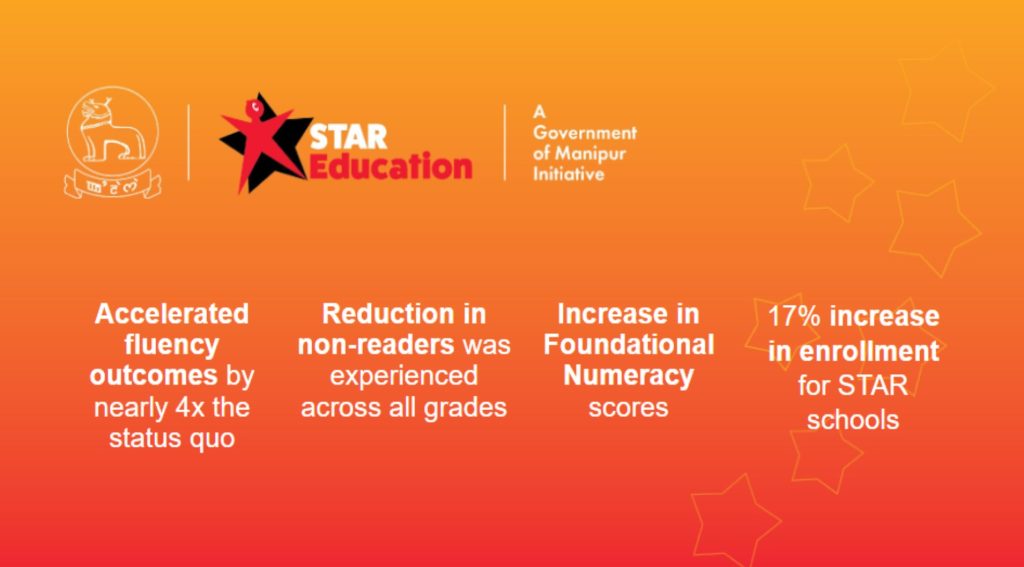
System Transformation and Rejuvenation of Education (STAR) Education under School Fagathansi Mission and the Department of Education Manipur aims to transform the education system of Manipur in Government schools through excellence in teaching and learning in classrooms, ensuring strong learning outcomes for children and better growth for the State. STAR Education believes that every child, regardless of their background, should have the opportunity to realise their full potential, in line with the National Education Policy 2020.
The STAR Education program is implemented in 253 schools training 1,172 teachers and impacting 24,290 students across 16 districts of the State in its first year. STAR Education’s unique approach, focuses on enhancing government schools through data-driven practices, thoughtfully designed lesson plans aligned with the national curriculum, supplementary learning materials, and an enduring emphasis on foundational skills.
In 2022, Nobel Prize Laureate Professor Michael Kremer conducted an independent randomised control trial on the learning model deployed by NewGlobe in Kenya, which is the same learning model used by STAR Education in Manipur. He found that this holistic learning methodology delivers amongst the largest learning gains ever measured globally. This model produced 3.5 Years of Learning in 2 school years. In Nigeria where the Study was conducted, this learning model demonstrated great results wherein children scoring less than national average in a low income country equaled learning levels of their peers in middle income countries in 3 years.
The STAR Education program is locally contextualised and globally benchmarked to ensure children are set up for a globally competitive future.
Core to the global learning model is the local contextualisation that starts with intensive field work to identify learning needs, understand teacher capabilities and map local syllabus to globally benchmarked assessment tools.
Also integral to the program is an intensive training session for Government teachers and headmasters/mistresses, equipping them with essential leadership skills, classroom management techniques, teaching strategies, and technical competencies. By providing teachers with the right technology, tools and unwavering support, STAR Education empowers them to drive positive change in schools, regardless of the barriers they encounter.

In the program, each school headmaster/headmistress is supplied with a smartphone synchronised with digital teaching guides, facilitating access to daily lesson plans. The teachers are provided with Teacher tablets which are synced to the smartphones for daily lesson deliveries and data. Furthermore, district-level supervisors and tech support teams offer steadfast assistance, empowering schools to overcome challenges effectively. The core essence of the model lies not in the inputs, but in the monitoring, feedback and coaching to ensure that each teaching day is an improvement upon the previous day by continuously adapting to the learning needs and teacher delivery in classrooms. The constant monitoring of learning outcomes remains a fundamental pillar of STAR Education’s commitment to transforming the state’s education system.
STAR Education conducts regular surveys at crucial intervals: baseline, midline, and endline. A closer look at the 2023 midline survey results sheds light on the efficacy of the STAR Education program. In only 18 weeks since its inception, the STAR Education programme started to deliver on its promise to increase learning outcomes among students in Government schools.
Conducted in the months of January and February 2023, the midline survey engaged 1,400 students hailing from schools under STAR Education program. To ensure a balanced survey, it also included 400 students from non-STAR schools. The assessment focused on literacy and numeracy, employing the International Common Assessment of Numeracy (ICAN+) method. This method gauges seven critical numeracy competencies and presents four word problems with real-world applications. Additionally, the survey quantified Oral Reading Fluency using the metric of “correct words per minute” (cwpm).

The findings are encouraging and indicative of positive progress in student learning outcomes. Students within the STAR Education program demonstrated a significant uptick in fluency, recording a noteworthy 12-word-per-minute improvement relative to their non-STAR counterparts. Numeracy skills also showcased an 8% boost, presenting a clear advantage for schools employing STAR teaching methodologies.
Beyond the quantitative data, STAR Education has also fostered trust, leading to a notable enrolment increase of 43% in school enrolments in January 2023 compared to statewide average increase of 19% at the same time frame. Based on the results demonstrated in the first 6 months of implementation, STAR Education can be the answer to learning recovery and economic rejuvenation of its children’s economic future.
It is also noteworthy to highlight that since May 2023, STAR continued to work in relief camps providing 3-4 hours of joyful learning in relief camps during school closures to ensure continuity to learning activities.

